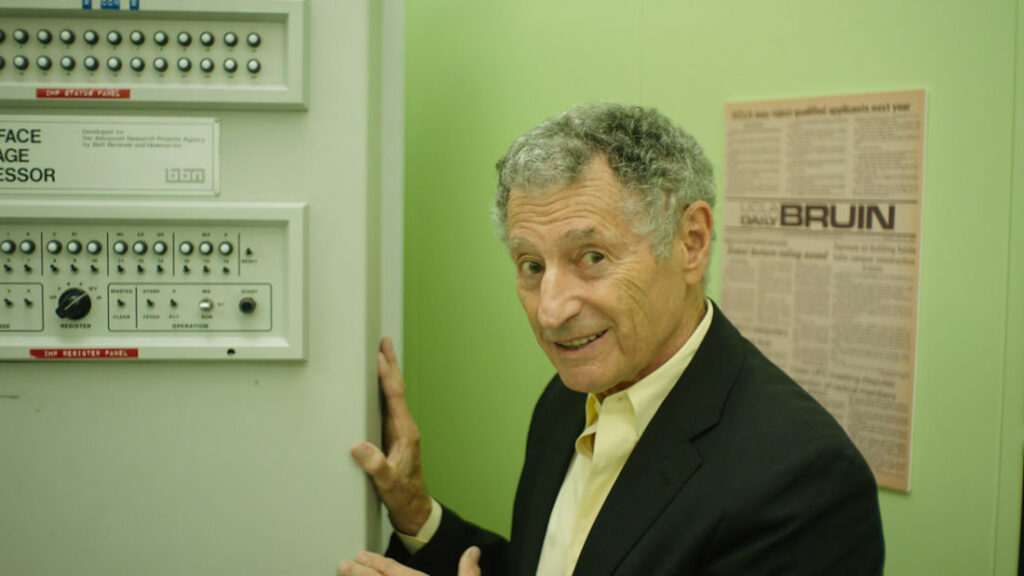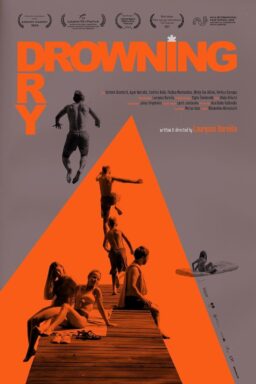Werner Herzog asks several interview subjects in his latest
documentary the same fantastic question: “Does the internet dream of itself?” It’s a
question only Herzog would or could ask, but it’s indicative of his approach to
the subject matter overall. He’s not interested in the nuts and bolts of the
history or even future of technology, but its human impact. Herzog has always
been a deeply human filmmaker, one captivated by behavior and man’s relation to
the natural world more than mere details. It’s that approach that makes “Lo and Behold” a deeply
Herzogian film, a study of how the invention of the internet in 1969 forever
changed the course of human evolution, and how we are still relatively in the
dark ages of technology.
The title is explained in the first segment—the film is
divided into ten with Herzogian titles like “The Internet of Me”—as we learn
about the first interaction between a computer at UCLA and one 400 miles away
at Stanford. The two computers were supposed to combine to form the word
“LOGIN,” with UCLA sending “LOG” and Stanford adding the “IN.” The server crashed
after the first two letters, meaning that the first transmission from computer
to computer was “LO,” as in “Lo and Behold.” Of course, Herzog is the kind of
filmmaker who loves this kind of synergy in which it feels like randomness is
commenting on the future. It’s only the beginning of a film that could only have
been made by one man, a movie that seeks to offer insight into the connectivity
provided by the internet but does so through the lens of a humanist.
Essentially, “Lo and Behold” is a series of interviews with
people who have more insight into technology and its impact on the human race
than you do. However, it’s not a cold, talking-head documentary that seeks to
chronicle how we got from “LO” to autonomous cars. It is a playful exploration
of the daily impact of technology. Herzog starts by examining the internet as a
connective, positive force, a way to develop communities and solve problems. But he’s not afraid of the dark side of the web either, relatively quickly
turning to a truly disturbing story of a family who suffered when a paramedic
took a picture of a decapitated family member at the scene of the crime and then put
it online. Shortly after a man talks about the power of the internet to cure
illness and provide education, we’re hearing from a mother who understandably calls it the Antichrist. This is the reality of technology—it is everything.
And that aspect of it allows Herzog to run wild with ideas
that interest him. He talks to people about autonomous cars that ping lasers
off what’s around them to satellites and back down again so they don’t hit
anything. He films a soccer match between robots who are being developed at
such a rate that their creators are planning for the day that they’ll be able
to beat the FIFA World Cup winning team. He speaks to people who have moved
close to a NORAD satellite that requires a technological blackout within a
ten-mile radius. These people believe that the waves from satellites and cell
phones are making them sick (kind of like Michael McKean’s character in “Better Call Saul”) and find solitude in this rare, isolated community. Herzog
allows time for such a variety of voices, from the hacker who obtained Motorola’s
source code merely to prove he could do so to Elon Musk, who wants to send
people to Mars and is working on that project right now. Herzog’s approach is like a tapestry with
each section and interview working like a patch instead of directly commenting
on each other.
To that end, “Lo and Behold” may feel a little disjointed
to some viewers, but I think that approach is entirely intentional and effective. As Herzog
says in the beginning, we have only scratched the surface of what technology
will do for future generations. By the end, he’s speaking to people who are convincingly
making the case that we will someday be able to tweet thoughts. He’s taken us
on a ten-chapter journey from “LO” to a future we can’t even really picture. As
the film points out, when people imagined the future in science fiction of the
past they more often pictured flying cars than the connectivity of the world
wide web. So it’s unlikely that we even know what’s next. I just hope Herzog is
around to offer his take on it.












